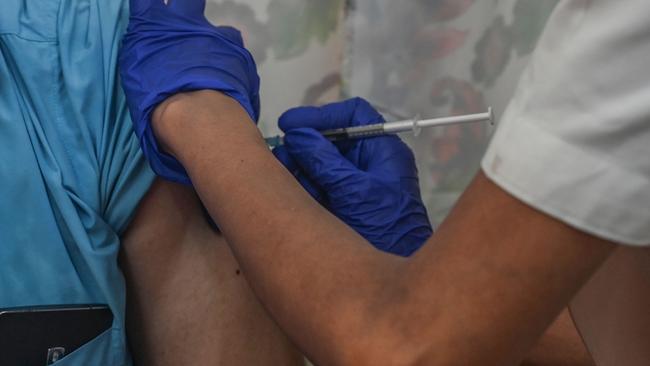Vaccine battle could threaten long-term health
Western governments are under pressure to waive intellectual property rights on Covid-19 vaccines, but it’s not so simple.

Amid this pandemic, scientists and businesses have made astounding achievements, developing and delivering vaccines against COVID-19. Their mission has been to have the world vaccinated, save lives and resurrect the global economy.
But, oddly, the policies that enabled firms to produce lifesaving technologies at historic speeds are under attack — with some organisations and countries pushing to nullify the intellectual property protections that made the innovations possible.
India and South Africa have petitioned the World Trade Organisation for a waiver that will allow countries to force the transfer of all relevant technology, intellectual property and know-how on COVID-19 vaccines. Supporters argue this will increase supply and expand access to vaccines, especially in developing countries, by enabling local producers to make them. Europe, Britain and Japan, among others, oppose the move — for now. The US is under heavy pressure to support it.
Everyone agrees that getting the world vaccinated is the best way to end the pandemic and to make sure people are safe. We all agree that this requires more global collaboration and significantly more investment by developed countries. No one is safe until we are all safe. Nullifying patents, however, offers the illusion of a speedy conclusion to the real difficulties facing the developing world. In reality the opposite is true: the reason we can even contemplate overcoming the crisis is because of advanced technology and the intellectual property protections that underlie it.
Consider how it works in practice. In January last year, the World Health Organisation announced the discovery of a novel coronavirus. This started a global scramble among research labs, drug companies, universities and foundations to develop vaccines and treatments. Even a slew of artificial intelligence start-ups pivoted and focused their work on it.
Two months later, Moderna began phase one trials for a vaccine. Pfizer started its trials in May, Johnson & Johnson in July. The reason these firms had products quickly is because of technologies that they had been labouring on for years — which emerged from an ecosystem that rewards risk-taking, ingenuity and patient investment.
In 2008, BioNTech began working with Pfizer on applying a vaccine technology for the seasonal flu. When the pandemic struck, they could quickly agree to fuse this technology with Pfizer’s manufacturing and clinical trial capabilities. The result was a vaccine approved and delivered in millions of doses in a year.
Patent protections offered these companies the security that if (a big if) they finally figured out a way to make the technology work, they would have the rights to commercialise it for a limited period before it became part of the public domain for all to use. The critical investors wouldn’t have risked their capital otherwise.
After all, though breakthroughs capture headlines, most technologies fail. What motivates them — working around the clock, risking COVID-19 exposure to keep their labs open — is the potential to save human life.
Before the pandemic ends, billions of dollars will have been spent on vaccine candidates and potential therapies that will never come to market or earn a penny in revenue. It’s tempting to focus solely on the success stories. But most experiments never make it out of the lab — and about nine in 10 of those fail in clinical trials. Of about 200 COVID-vaccine development programs, just 10 are available today. Our research and development ecosystem must cover the costs of the failures.
That’s what makes the proposal to waive intellectual property so shockingly misguided: it tells the successful firms and their investors that the results of their effort can be appropriated by anyone in the world and used far beyond the immediate pandemic.
The proposal undermines the system that produced the lifesaving science. And it destroys the incentive for companies to take risks to find solutions for the next health emergency.
We’ve seen the importance of intellectual property from multiple perspectives. As an academic researcher, I saw how licensing deals between university labs and private companies helped turn promising early-stage discoveries into tangible products. Intellectual property is the invisible filament that turns ideas into products. It also increases productivity by providing the legal certainty to enable companies to collaborate globally.
This is especially true for the manufacturing of such complex biologic drugs as this. Production is complicated and few firms around the world can do it at scale, at low cost and in compliance with strict standards and public expectations of safety. The scarcity of vaccines is not because of intellectual property but because of regrettable production and distribution challenges. There is a global shortage of components and ingredients needed. There is also the scarcity of human expertise to assist production.
Allowing governments to waive patents would undermine the global collaboration that has been under way and led to more than 900m vaccine doses being administered.
We are on track to have enough vaccines for 70 per cent of the global population by year end. More must be done to ensure vaccines are distributed equitably.
Michelle McMurry-Heath is an immunologist and chief executive of the Biotechnology Innovation Organisation, a US trade association for the biotech sector.



To join the conversation, please log in. Don't have an account? Register
Join the conversation, you are commenting as Logout